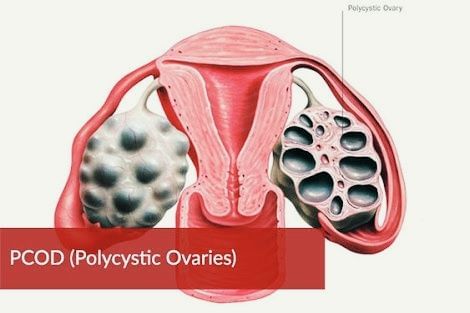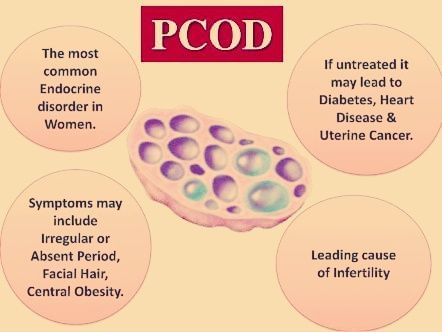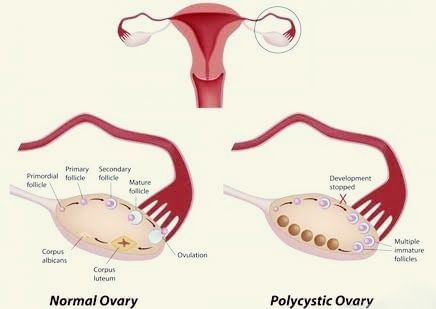Pcod/ Polycystic Ovarian Disease!
Polycystic ovary syndrome (pcos) is a hormonal disorder common among women of reproductive age. Women with pcos may have infrequent or prolonged menstrual periods or excess male hormone (androgen) levels.
Symptoms
Signs and symptoms of pcos vary. A diagnosis of pcos is made when you experience at least two of these signs:
Irregular periods. Infrequent, irregular or prolonged menstrual cycles are the most common sign of pcos. For example, you might have fewer than nine periods a year, more than 35 days between periods and abnormally heavy periods.
Excess androgen. Elevated levels of male hormone may result in physical signs, such as excess facial and body hair (hirsutism), and occasionally severe acne and male-pattern baldness.
Polycystic ovaries. Your ovaries might be enlarged and contain follicles that surround the eggs. As a result, the ovaries might fail to function regularly.
Causes
The exact cause of pcos isn't known. Factors that might play a role include:
Excess insulin
Heredity
Excess androgen
Low-grade inflammation (role of reactive oxygen species)
Complications
1) obesity
2) infertility
3) gestational diabetes or pregnancy-induced high blood pressure
4) miscarriage or premature birth
5) nonalcoholic steatohepatitis
6) metabolic syndrome comprising of high blood pressure, high blood sugars and impaired cholesterol levels leading to increase risk of cardiovascular disease
7) pre diabetes/ type 2 diabetes
8) sleep apnoea
9) depression, anxiety, eating disorders
10) abnormal uterine bleeding
11) cancer uterus
Diagnosis
There's no test to definitively diagnose pcos. Your doctor is likely to start with a discussion of your medical history, including your menstrual periods and weight changes. A physical exam will include checking for signs of excess hair growth, insulin resistance and acne. Other modalities include a pelvic examination, blood tests and an ultrasound
Treatment
Pcos treatment focuses on managing your individual concerns, such as infertility, irregular periods, hirsutism, acne or obesity. Specific treatment might involve lifestyle changes (weight reduction/ limit carbohydrates/ active exercises) or medication (depending upon the focus of concern).





+1.svg)
